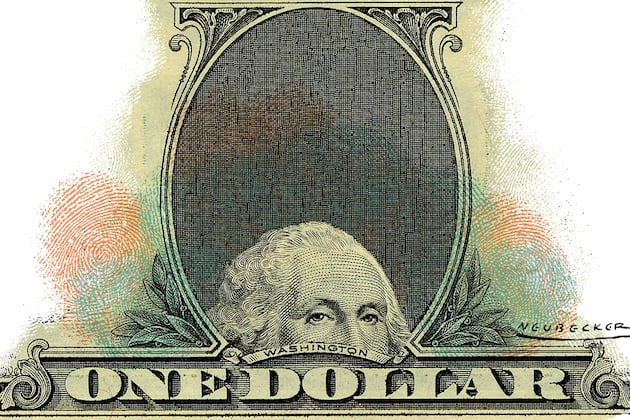Copyright Salt Lake City Deseret News

There are subtle signs that the world is losing trust in the United States dollar. It’s still the lingua franca of global transactions but now makes up 58% of the world’s currency reserves, down from 72% in 2001. That’s not a fire sale, but it reflects worrisome barometers, like the crash of domestic savings, ballooning federal debt and whiplash fiscal policy shifts every four or eight years. S&P Global still gives U.S. credit worthiness an AA+ rating — but that comes with a warning that it could change if deficit spending is not held in check. All of which also impacts the dollar’s value on the foreign exchange market. Should America fight to keep the greenback strong or let market forces dictate its value? More bang The dollar’s historical reliability — even after it was decoupled from the gold standard in 1971 — has made it a powerful policy tool that reflected America’s place in the world and its economic health at home. The U.S. was a bulwark of liberal democracy and a leader in manufacturing and innovation, outpacing counterparts that were still rebuilding after World War II. But the country also practiced sound stewardship of its own finances, varying by party but largely within reason. That consistency helped to fuel American influence and soft power. That’s worth fighting for. America’s dominance of currency reserves is often called an “exorbitant privilege,” as it grants the nation tremendous influence. Historically, this has been leveraged to promote democratic values, human rights and ethical practices across borders. That could change if a currency backed by different ideas took the dollar’s place. “We don’t want to do business with child labor or human rights abuses,” said Zongyuan Zoe Liu, an expert for the Council on Foreign Relations, in 2023. “But in a different system, perhaps some of those values would be more likely to be ignored, rather than preserved.” That kind of power becomes even more apparent when you look at international trade. Most of these transactions are carried out in dollars, using an international banking system pioneered and managed by the U.S., but private and government participants are also subject to American sanctions. For example, after Russia invaded Ukraine in 2022, the U.S. cut Russia off from the dollar — along with access to the banking system — instantly freezing $300 billion in funds. That money was then used to subsidize military aid that allowed Ukraine to defend itself. One reason America has these tools at its command is the dollar’s consistency. Though its value may fluctuate, a stronger dollar can benefit American businesses and consumers alike. Simply put, the more a dollar is worth, the more it can buy abroad. That lowers costs for importers, whether they bring in raw materials or finished products. As manufacturing has been moved overseas, the U.S. imports far more goods and services than it exports — a difference of $78.3 billion as of July. For consumers, that makes for more affordable purchases, from bananas to pickup trucks, and cheaper international tourism. Less buck Being the world’s bank comes with costs and risks. While commerce and finance can be used as tools for diplomacy, their best interests are not always aligned. For example, America’s practice of imposing financial sanctions has pushed trading partners like India to drop the dollar when doing business with Russia. In extreme examples, this combination can make the U.S. a target, both in terms of national security and trade. China has been known to manipulate the value of its currency to take advantage of the stronger dollar. Keeping the dollar strong also impacts American businesses and even jobs by making exports more expensive and therefore less competitive on the global market. This tends to hurt states that are focused on manufacturing, as in the Rust Belt, to a disproportionate degree. “Both the United States and the world at large would benefit from a less dominant U.S. dollar,” wrote Michael Pettis, a finance professor at Peking University in Beijing, in 2023. “The U.S. economy in particular would benefit because it would no longer be forced to absorb, through higher unemployment or more debt, the effects of the mercantilist policies of surplus countries.” There are also international benefits to a weaker dollar, which enables smaller countries to practice financial autonomy. The currencies of these countries often drop when the dollar rises, which makes the alternative of “dollarization,” or pegging their currencies to the dollar, more attractive. But in the process, they forfeit the right to print their own money and enact monetary policies that serve their sovereign interest. The U.S. should encourage emerging economies to become financially independent for the sake of global stability. A stronger dollar also makes the U.S. a more expensive destination, which inevitably discourages foreign tourists from visiting. Steep exchange rates mean foreign visitors get less value for their money, which could put America out of reach for travelers who can’t afford such a loss. The corresponding drop in tourism undermines that market for many local businesses, particularly in the hospitality sector, and local economies in areas that depend on their success. Another cost is less concrete: reduced benefits of cultural exchange.



